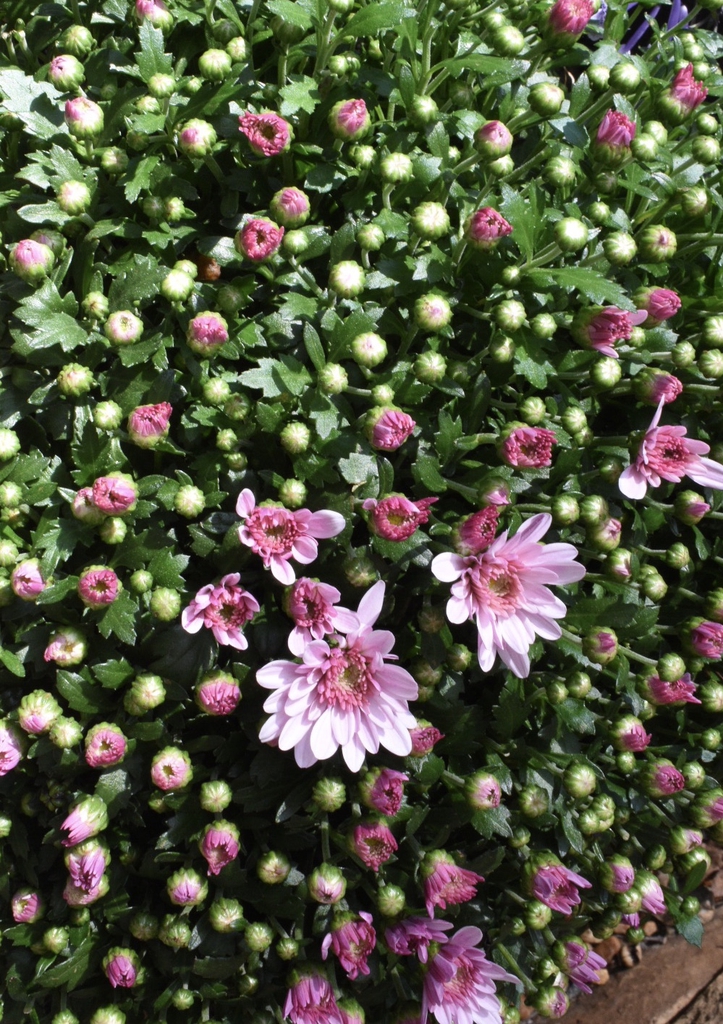Now that fall weather is upon us, October a great time to enjoy working in your gardens and landscapes. Use these tips to transition your garden from summer to fall:
For all Garden Types:
- Now is a good time to get a soil test for your lawn, landscape beds, and vegetable gardens. This allows enough time to get results and apply what is needed to prepare for next spring growing season.
Lawn
- Do not apply any more nitrogen fertilizers to lawns. As soil temperatures cool, warm-season lawns will being going dormant for the winter. Added nitrogen fertilizer after August can encourage growth at the wrong time of year and increase winter injury.
- Think you are done fertilizing the lawn for the year? An application of potassium or potash fertilizer in late summer into early fall will help improve winter hardiness. Apply 1.5 pounds 0-0-60 (muriate of potash) or 2 pounds of 0-0-50 (potassium sulfate) per 1,000 square feet at 4 to 6 weeks before first expected frost.
Trees, Shrubs and Flowers
- Now is the time to be planting pansies in the landscape for that show of color in the winter months. Plant pansies in well-drained soils. After planting, add mulch and water thoroughly. Check water for the first three weeks until roots are established.
- October is a great time to plant trees and shrubs in the landscape. Remember to not plant trees and shrubs too deep! Provide some water to newly planted plants up until the first frost.
- As herbaceous perennials begin to die back, October is a good time to apply mulch to protect the root system through the winter months. Mulch also provides other benefits like conserving moisture and controlling weeds. Apply a 2 to 3 inch layer.
- Do not be alarmed if evergreens like pines, junipers, arborvitae, and yews begin to shed their interior needles. It is natural for them to do this during this time of the year.
- Now is the time to start bringing in houseplants for the winter. Before bringing in clean up plants and check to make sure you are not bringing in an unwelcome insect or pest.
- The autumn leaf fall can be pretty, but it can also suffocate a lawn if this spent foliage isn’t raked up every few days. This is especially true for newly established lawns.
- To help prevent black spot on roses next year, after leaf fall, rake up and discard the summer mulch and debris from under the plants, and replace with a fresh winter mulch.
Your Gardening Tips Sponsored By
Fruit, Vegetables and Herbs
- Now that your vegetable garden is harvested for the year, don’t forget to remove left over plants. Plants left in the ground over the winter may increase insect and disease problems next year.
- Instead of leaving your vegetable garden area bare over the winter, plant cover crops like rye or crimson clover. This will help prevent erosion in the garden and add organic matter to the soil when you turn it under in the spring.
- Before you forget, make a note of any particular varieties of vegetables planted this year that you liked or performed well as well as ones that did not. Such information can be very useful when planning next years’ garden.
Jessica Strickland is an Agriculture Extension Agent, specializing in horticulture for North Carolina Cooperative Extension in Wayne County.



